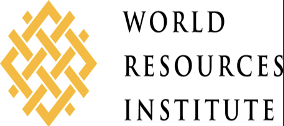Africa Research and Impact Network (ARIN) is implementing a project on behalf of World Resources Institute (WRI) titled, “Stakeholder Mapping for Scaling Community-Based Measurement of Urban Heat in Developing Countries; Kenya, Ethiopia and Rwanda with a focus on the cities of Nairobi, Addis Ababa and Kigali. The primary objective of the project is to conduct thorough stakeholder mapping to establish a database of key partners who can reliably support sensor deployment, data collection, and drive community engagement to mitigate intra-urban heat hazards. A mixed-method approach will be adopted that will combine the use of Key Informant Interviews (KIIs), Focused-Group Discussions (FGDs), and Rapid Stakeholder Assessment. Through this approach, the project will map the stakeholders, assess their level of influence and interest, and identify the stakeholders’ needs, concerns, and expectations related to the project. Further interviews/surveys will be conducted with the identified stakeholders to assess their technical capacity to support the deployment of heat sensors, data collection, data analysis, and community-based climate interventions. The mapping exercise is expected to establish a database of key partners who can reliably support sensor deployment, support data collection, and drive community engagement to mitigate intra-urban heat. This will be key to WRI’s second phase of the project, which proposes to work with the identified partners to conduct one or more sensor deployment campaigns, publish our guidance with lessons learned from the campaign, and publish the dataset from the newly deployed sensors.
Objectives of the Study
The main objective
To undertake a stakeholder mapping to establish a database of key partners who can reliably support sensor deployment, and data collection, and drive community engagement to mitigate intra-urban heat.
Specific Objectives
- To identify key stakeholders, their profiles and categories relevant to the project, and key contact persons.
- To assess stakeholders’ technical capability, level of influence, interest, and willingness to participate in the project.
- To determine the stakeholders’ needs, concerns, and expectations related to the project.
The implementation of this project will be undertaken through:
- Stakeholder mapping and analysis: This will provide a visual representation of the stakeholders’ landscape within the three cities of Nairobi, Kigali, and Addis Ababa to enable the project implementers to understand their influence, interests, relationships, and the potential impacts of the project’s success
- Stakeholder Technical Assessment, and Engagement Strategy: This will be undertaken to determine the technical capability, level of influence, interest, and willingness to participate in the project. In addition, the stakeholder’s needs, concerns, and expectations related to the project will be assessed.
- Validation Workshop Convening: A workshop convening key stakeholders from the relevant departments in the intra-urban heat hazards space will be held to review the findings and validate the entire stakeholder mapping and engagement process. The validation workshop will also ensure the robustness and relevance of the project to the local situation. Through this approach, the project will enhance ownership and increase the likelihood of successful project implementation and outcomes.
Project Outputs
- Database of key stakeholders for engagement and communication relevant to the project
- Stakeholder engagement mapping and analysis report for the Scaling Community-Based Data
Collection on Intra-Urban Heat Hazards project.
- Stakeholders Assessment report on their needs, concerns, and expectations related to the Scaling
Community-Based Data Collection on Intra-Urban Heat Hazards project.
- Engagement opportunities for more impactful outcomes in interventions targeting intra-urban
heat
Project Team Members
Principal Investigator (PI) – Dr. Joannes Atela, Executive Director – (ARIN)
Project Coordinator: Dr. Humphrey Agevi, Research Associate- ARIN
Project Assistants: Emily Bolo, Nancy Mutwii, Anne Wanjiru
Funder

